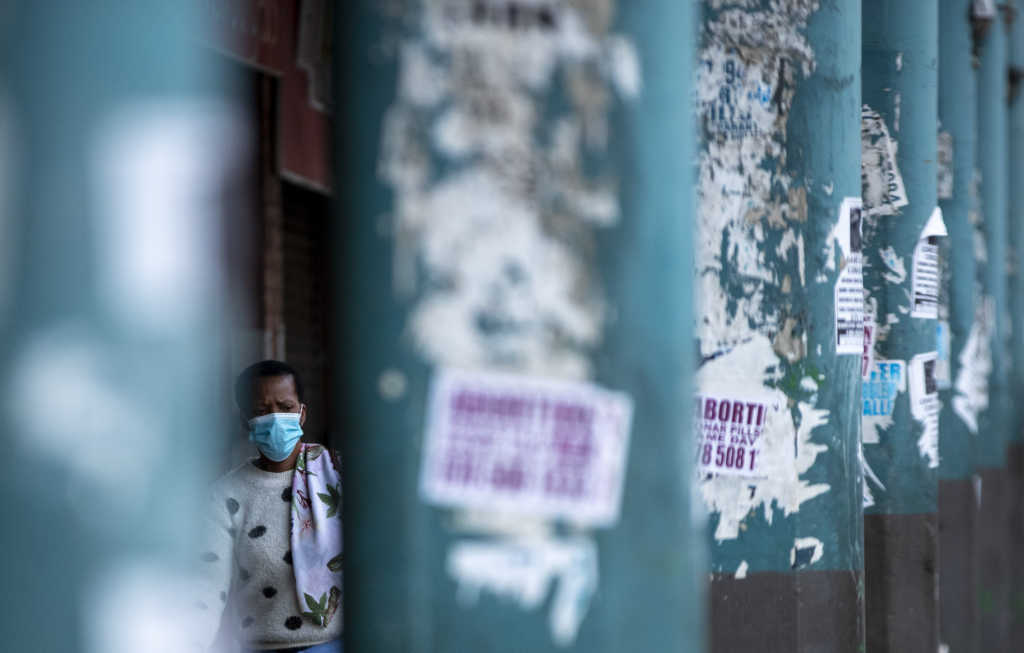By George Thomas
As the world searches for a way to recover from the COVID-19 impact, experts warn the pandemic could push millions to the brink of starvation. The United Nations warning if countries don’t act now, people around the world could face multiple famines.
A new study by the United Nations shows an economic fallout that could push half a billion more people into potential famine conditions.
“Before COVID hit the scenes a few months ago, I had already been warning leaders around the world, especially in Europe, that Africa was in a lot of trouble and that we could have 2020 be the worst humanitarian crisis since World War II before COVID,” David Beasley, with the UN’s World Food Program, told CBN News
His agency says 55 countries are at risk right now of severe famine. Sub-Saharan Africa potentially being the hardest hit.
The program predicting that if current projections remain, the region will be home to half the world’s poor.
“In Africa for example, South Sudan will be, Burkina Faso, Sudan, Somalia, Ethiopia, DRC, just to name a few right off the top,” Beasley said,
In war-torn Somalia, WFP has deployed planeloads of protective equipment and medical supplies for distribution throughout the country and surrounding region.
Food rations are also delivered on three-wheelers to residents of the capital city Mogadishu.
“The food that we used to go to get from the shops is now being delivered to our homes,” said Hani Mohamed Abdikadir, a resident of the capital. “I’m so happy for this. It has changed many things in my life.”
Further east, in Nigeria, where 90 percent of the revenue comes from oil, the country’s poor struggling to get food on the table.
“People must eat,” said Shehu Usma, a resident of Lagos. “I strongly believe that hunger is much more dangerous than even the coronavirus, so we must do our best to ensure that people get food to eat.”
CBN’s Nigeria office preparing to respond – distributing face masks, setting up hand washing stations, and working with the US Embassy to create a small chlorine manufacturing plant.
Several Nigerian churches are also involved in food distributions.
“We’ve been in total lockdown for about five weeks, even though the lockdown has been relaxed somewhat, but then a lot of people’s businesses have gone down and that is creating a lot of problems and so churches are stepping in to bridge the gap,” Felix Oisamaje, CBN’s Nigeria director, told us.
Meanwhile, political instability and wars in places like Afghanistan, Syria, Haiti and Venezuela are also pushing people who were already hanging by a thread over the edge.
In battle-scarred Yemen for example, health workers sounding the alarm as vulnerable children face increased need.
“We estimate than an additional four million children are going to slide into poverty as a result of COVID-19,” warned the UNICEF’s Ted Chaiban.
Beasley says lockdowns and sliding economies are making things even harder for the most vulnerable.
He warns more people could lose their lives from the economic fallout than from the virus itself.
“If we don’t have food, the monies we need, supply chain, access, we literally could have famine in dozens of countries around the world. This is not a ‘chicken little, the sky is falling’ this is the reality that we are facing as we speak.”
With hundreds of millions across the world already relying heavily on food aid, Beasley says it’s critical that countries act now.
His group, along with Samaritan’s Purse, World Vision, Operation Blessing and other Christian aid agencies are deploying vital resources to prevent a potential humanitarian catastrophe.
“If you look at the statistics, you find that the number of people infected with the coronavirus is increasing by the day here,” warned Oisamaje. “So, it’s very critical to make sure that [those resources] can help mitigate the spread of the virus.”



